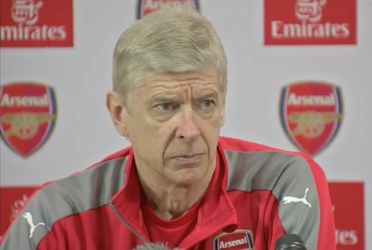18th April 2009. Wembley. The FA Cup semi-final. Arsenal face Chelsea. The teams are announced and there is no Andrey Arshavin in the line-up. Arsene Wenger’s team lose 2-1. Three days later, the Russian striker scores four against Liverpool at Anfield. Not long afterwards, Arsenal are eliminated from the Champions League as they lose the second leg of their semi-final v Manchester United 3-1 at home, before suffering a 4-1 Premier League defeat at the Emirates to Chelsea five days later. Wenger has a very uncomfortable evening of shareholder questions at a scheduled annual Q&A event in which he explains he did not play Arshavin at Wembley because he wanted his team to believe they could win a big game without him, in preparation for the Manchester United European clash, for which Arshavin was ineligible.
With hindsight, these few weeks, combined with the collapse in the Premier League and European exit at Liverpool the previous campaign, were a turning point in the club’s ability to challenge for the major honours under Wenger. And with the non-selection of Lucas Perez so often this season, the mind harks back to his decision not to play Arshavin in the FA Cup semi-final. There is a theory that Wenger was never comfortable with the Russian, because he was a player that was purchased largely as a consequence of boardroom pressure after a disappointing start to the 2008-09 season.
Fast forward to the summer of 2016 and huge pressure on Wenger to buy a striker after the failure to stop Leicester winning the title the previous season. Lucas Perez is purchased from Deportivo La Coruna. When he plays with established first team players, Perez gels well with his colleagues and both assists and scores goals. And yet the manager won’t start him with any frequency. Is this another case of an talented player being frozen out to make a point to the board? Is this Arsene Wenger stating – I decide on the players at this football club, and no-one else?
Wenger’s press conference this morning, ahead of the visit to Southampton was revealing. When quizzed about speculation over a director of football being recruited by the club, a mooted part of the response to the defeats this calendar year being used as a “catalyst for change” at the club by CEO Ivan Gazidis, Wenger responded, “I’m the manager of Arsenal Football Club and as long as I’m manager of Arsenal Football Club, I will decide what happens on the technical front. That’s it.” Or if you want that translated, you can bring in whoever you like to sign players, but I am the one who will decide whether they play.
There are stories that Wenger and the board have not communicated for months. The two year deal that was on offer has been withdrawn and that, as the club states, the decision will indeed be made “mutually” at the end of the season. Meaning agreement has to take place if Wenger is to remain. That may be a long shot.
What interests me is that Wenger has always stated that he wants to leave the club in a strong position for whoever succeeds him as manager, and yet he is resistant to changes that will bring Arsenal into line with the European superpowers that they aspire to join. So Bayern Munich, Barcelona et al have a footballing policy structure in place, often involving former players, that means the first team coach can be changed as and when required without making huge shockwaves. It’s a system that has been adopted at Chelsea (look at the number of loanee players they have to call upon) and Manchester City. Fundamentally, a group of experienced individuals combine their heads to make decisions about the footballing side of the club.
At Arsenal, this all falls down to one man. Would Wenger expect his successor to take on everything that he wishes to control? Dick Law’s abilities at securing players have been the subject of ridicule, and there are certainly transfer targets both high profile and then relatively unknown that the club have managed to lose out on through incompetence or indecision (Xabi Alonso from Liverpool, Juan Mata from Valencia, Luis Suarez from Liverpool, Gonzalo Higuain from Real Madrid, Antoine Griezmann from Real Sociedad and N’Golo Kante from Caen are just some examples). And yet Law keeps his job. Changes to any of the scouting or coaching staff are rare, in spite of repeated failings. Factors such as loyalty seems to over-ride ability or targets.
Wenger could justify his need to run the whole show if he were more successful. It does appear as if a showdown is in the offing when discussions about an extension do take place. The board have taken the decision that a structure above the manager is required. The manager is unlikely to accept it, or if he is persuaded to, one imagines he will cut off his nose to spite his face by not utilising incoming players that he has not personally approved.
Is this the best way to run a football club?








